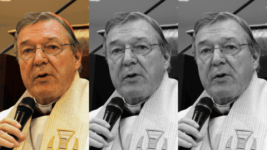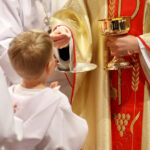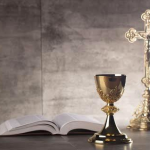Pell’s Passing Marks Justice Unserved and Exposes the Power of a Corrupt Church

The 10 January death of George Pell left many with a bad taste in their mouths. A former archbishop of both the Melbourne and Sydney archdioceses, Pell represented to many, the corrupting effect of power and the ability it gives to retain one’s liberty in the face of alleged crimes due social standing.
This unease with the death of a fellow human being is down the fact that a royal commission has found he was actively complicit in the long-term covering up of child sexual abuse perpetrated by priests, and a 2018 Australian jury overwhelming found Pell guilty of five historical child sex crimes.
The understanding that the Catholic Church harbours kiddie fiddlers is nothing new. However, having such a prominent leader, like Pell, standing trial on allegations of sexually assaulting children did seem like justice served, at least for a short time.
But the overturning of his convictions by the High Court of Australia on the basis of a legal technicality, served to expose the deep level of corruption that the Catholic religion wields in nations where the conservative grip of the church is strong.
And the outpouring of grief paid by the political class since Pell’s passing, fuels further public disdain for a system that sees the likes of John Howard, Tony Abbott and Peter Dutton lamenting the death of a “saint”, like Pell, who was happy to let children be raped by his colleagues.
Criminal matters
In December 2018, a jury found Cardinal Pell guilty of five offences relating to the sexual assault of two young boys in the mid-90s. These crimes included one count of sexual penetration of a child under 16 and four counts of committing an indecent act in the presence of or with a child under 16.
The jury heard that over the years 1996 and 1997, Pell conducted Sunday Solemn Mass at St Patrick’s Cathedral in Melbourne, in his capacity as archbishop. And for this alleged abuse, Justice Peter Kidd sentenced him to six years inside, with non-parole set at 3 years and 8 months.
The cardinal, however, went on to challenge his convictions to the Victorian Court of Appeal in mid-2019. And the three-justice bench found that all grounds raised, which related to the verdicts being unreasonable as they weren’t supported by the evidence, were not made out.
Yet, an appeal of this decision to the High Court in April the next year, resulted in the full bench determining that the clergyman be acquitted of all charges, as the jury should have entertained a doubt as to Pell’s guilt if it had been acting in a reasonable manner.
The exoneration of Pell was down to a technicality. The justices were not deliberating upon the cardinal’s guilt, but rather they asked whether the Victorian appeals judges were misguided in their understanding of legal principles.
Pell put it to the court that the evidence left him alone with one of the alleged victims for only five or six minutes in the sacristy in order for him to commit the sexual offending, and due to this, the High Court justices agreed, a reasonable doubt should have arisen, and Pell was therefore acquitted.
Commissioners’ opinion stands
The Royal Commission into the Institutional Responses to Child Sexual Abuse was an official investigation into such abuse in institutions, in particular, the Christian Church. The five-year-long inquiry released its reports at the end of 2017, yet one involving Pell was heavily redacted.
Report Case Study No.28: Catholic Church Authorities in Ballarat was only released in its full form in May 2020, so that the information divulged within would not be circulating in the community, with the ability to influence Pell’s case prior to and during his criminal proceedings.
Covering the diocese of Ballarat, which is where Pell was ordained as a priest and it was also the epicentre of Catholic child abuse over the 1970s and 1980s, the commissioners looked into what Pell was privy to regarding allegations of child sexual abuse amongst the staff that worked under him.
Unlike the jury, the commission didn’t ascertain that Pell was acting in a paedophilic manner whilst he was in the Victorian Central Highlands, but what it did find was the man who was supposed to be caring for his flock, was simply looking away as his fellow priests satisfied their urges on children.
During this time, the Christian Brothers were education providers in Ballarat, and they taught at a number of local schools, including St Patricks College.
Former Ballarat priest Gerald Ridsdale is currently serving time over the sexual abuse of kids. In 1973, Pell became aware of the notorious paedophile priest’s behaviour. So, the decision was made to send him away to a smaller parish, which wasn’t a first time for Pell’s former flatmate.
The most serious allegation levelled against Pell at the royal commission hearings was that in 1983, when David Ridsdale, the priest’s nephew, sought his help regarding his uncle’s unwanted approaches, Pell attempted to bribe him to stay quiet: an assertion the commissioners didn’t accept.
Further testimony implied that when a schoolboy had approached Pell in 1973 about serial paedophile Edward Dolan beating on and molesting his students, the priest got angry and told him to go away.
Pell later denied this allegation, stating the boy had never approached him, and the commissioners accepted this excuse as well. And these Ridsdale and Dolan scenarios aren’t the only allegations coming out of Ballarat that were cited at the inquiry hearings.
“This case study exposed a catastrophic failure in the leadership of the diocese and ultimately in the structure and culture of the Church over decades to effectively respond to the sexual abuse of children by its priests,” the commissioners wrote in report No.28.
“That failure led to the suffering and often irreparable harm to children, their families and the wider community.”
“Predator brothers and priests”
Pell died of a cardiac arrest at the age of 81 in Rome. The archbishop was also an ultraconservative who rallied against same-sex marriage, reproductive rights and climate change during his time, hence his favoured position of friend to the Liberal Nationals leadership.
Perhaps the most welcomed comment for a public whose hopes have been dashed by Pell’s acquittal and the corruption of a church focused on securing its dwindling power at the cost of human decency, are those that came from Victorian premier Dan Andrews.
On being questioned following Pell’s death, Andrews said there wouldn’t be a state funeral out of respect for the victims of child abuse. And he added that instead of having dealt with its paedophile problem the church has just shifted priests around “from one working class parish to the next”.
“For victim-survivors, I want to send the clearest possible message: We see you, we believe you, we support you and you’re at the centre of not only our thoughts, not only our words, but our actions,” the Victorian premier told reporters last week.







